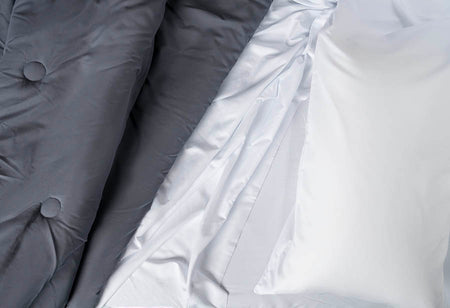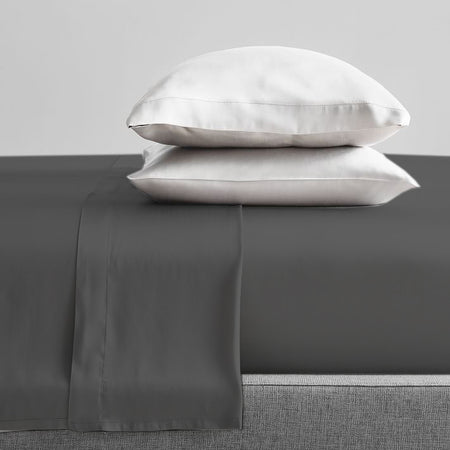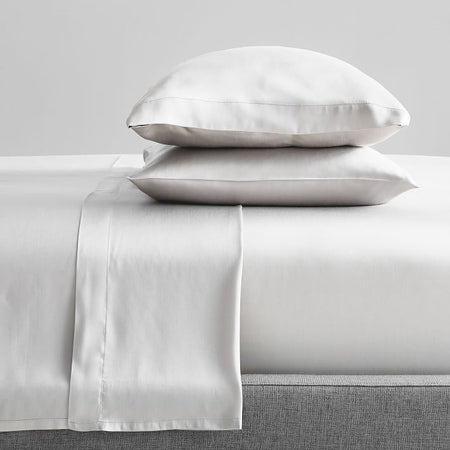Sleep--some days there’s nothing like it. Many of us know the great feeling of getting into bed and falling into a deep, relaxing slumber. Surely everyone has enjoyed themselves a time or two by sleeping-in on the weekends, and for those who are still able, many find themselves doing it all the time--even if it technically isn’t the weekend. Regardless of how much sleep you are able to get, getting good, quality sleep is often considered a luxury, especially for those who aren’t able to get it all the time.
Getting enough sleep is important for both your physical and mental health.

Aside from the feel good quality of getting a good slumber, getting enough sleep is important for your mental and physical health--it is imperative to our survival and without it many of us would be unable to function. Even though technically you can only survive a few days to weeks without food and water, the same can be said about sleep. Many people overlook the importance of a good night’s sleep but research indicates it serves many biological functions. For instance, during sleep, the brain stores new information learned throughout the day and rids itself of toxins, while the body repairs cells and restores energy.
Sleeping at night has been something humans have always needed to do, so it makes sense that it is important for our overall, healthy biological functioning. The energy conservation, cellular restoration, and improved brain function are all great aspects of getting good sleep. But perhaps the most important, is the benefit to our mental health and emotional well-being. This is especially true these days with everything going on with the global Coronavirus pandemic, taking its toll on us, both mentally and emotionally. Sleep is not only necessary for our physical health, but it is absolutely essential to maintain our mental health as well.
What is the proper amount of sleep?
When it comes to getting the right amount of sleep, that can sometimes be tricky for people. There are those who do not get enough sleep to begin with, and then there are those who simply get too much--and yes, too much sleep is a real thing! Unfortunately, when it comes to either side of getting too much or too little, there are many symptoms that affect both your mental and physical health. If you are unsure whether you are getting too much sleep, too little, or just the right amount, then here are a few examples so that you may be able to better determine that for yourself.
Not Getting Enough Sleep

Unfortunately, in America it seems that not getting enough sleep seems to be a problem for many people. According to the CDC (Centers for Disease Control and Prevention), one in three adults in the US do not get enough sleep on a regular basis. As mentioned earlier, a lack of quality sleep can have a detrimental impact on your mental and physical health. Here are a few symptoms associated with not getting enough sleep;
- Fatigue, irritability, mood swings
- Anxiety
- Depression
- Poor memory, focus, and concentration
- Reduced sex drive
- Poor motor function
- Overall increased risk of death
Also commonly referred to as insomnia or sleep deprivation, not getting enough sleep can also cause a weakened immune system, which may leave you prone to infections and cardiovascular disease. Sleep also plays a role in the release of hormones that control our feelings of fullness and hunger, leading to things like weight gain and an increased risk for diabetes. Lack of sleep may also affect fertility as it plays a role in the production of hormones that boost fertility.
Getting Too Much Sleep

Much like not getting enough sleep, getting too much sleep has some pretty severe side effects and symptoms that affect the total health of the individual. Though sleeping in on the weekends or taking a nap during the day are all healthy in moderation, many people end up getting too much sleep. It is estimated that 70 million Americans struggle with some kind of sleep disorder every year. This includes getting too much sleep, which is often referred to as hypersomnia. Here are some signs you might be getting too much sleep:
- Back pain/increased pain
- Increased inflammation
- Depression
- Headaches
- Cognitive impairment
- Overall increased risk of death
The symptoms of getting too much sleep are very similar to not getting enough sleep. Although depression is more commonly associated with not getting enough sleep, around 15% of people who sleep too much also have depression, which only helps to make matters worse. People who get too much sleep are also at a higher risk of overall mortality (death), the same with people who do not get enough sleep. Increased rates of obesity are also associated with people who get too much sleep, as well as higher rates of diabetes.
How much sleep should I be getting?

As you can see, not getting enough and getting too much when it comes to sleeping has many side effects and symptoms. These can play a huge role in our overall mental and physical health. When it comes to getting too much sleep, the numbers seem to vary, but many experts agree that anything over 10 hours a day for an adult is too much. However, the right amount of sleep depends a lot on where you are in your life cycle. Newborns, for instance, need a lot more sleep than someone who is in their 60’s. That's because sleep is crucial to our development, which happens earlier on in life. According to the CDC, here are the recommended hours of sleep per 24 hour day (including naps) for various different age groups:
- Infant (4 - 12 months): 12 - 16 hours
- Toddler (1 - 2 years): 11 - 14 hours
- Pre-School (3 - 5 years): 10 - 13 hours
- School Age (6 - 12 years): 9 - 12 hours
- Teen (13 - 18 years): 8 - 10 hours
- Adult (18 + years): 7 or more hours
One of the biggest reasons why people may not be getting the right amount of sleep at night is their mattress. If you find that you are tossing and turning at night and unable to get the right amount of sleep, it may be time to replace your mattress. Let our highly trained staff at The Bedding Mart help you find the right mattress to get you back on the road to getting a good night’s sleep! We have a huge selection of quality mattresses for you to choose from at any of our seven locations in Arkansas, Missouri or Texas. Or, you can always browse our selection online!






















